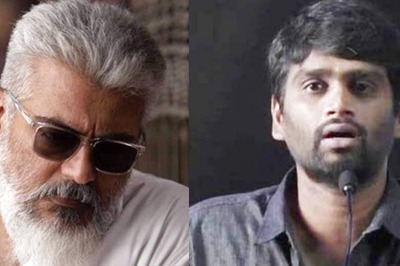
views
SAN SALVADOR, El Salvador: Civic groups and activists criticized Wednesday a proposal by President Nayib Bukeles to ban foreign donations or funding for non-governmental organizations that supposedly carry out political activity in El Salvador.
The groups said it was an attempt by Bukele to stamp out criticism of his populist government.
Eduardo Escobar, the director of the NGO Citizen Action, called it an attempt to silence the critical voices of civic groups.
Bukele sent the bill this week to Congress, where his New Ideas party is dominant and is expected to pass the law. He accuses civic groups of helping organize protest marches against his government.
But groups that promote government transparency and accountability say Bukele has drawn the protests on himself by weakening democracy and the separation of powers.
Under the law, other civic groups would have to report foreign donations and account for them, and pay a 40% tax on them.
Congressman Csar Reyes of the conservative Arena party said the intention of the bill is to undermine our democracy and place chains on the civic groups that defend the rule of law.
Following a series of protests against Bukele, his party has banned mass gatherings in October, supposedly to prevent the spread of COVID-19, but exempted sporting and cultural events.
That apparent contradiction led opposition activists to accuse Bukele of banning protests while leaving other potential super-spreader events untouched.
Bukele, who once jokingly changed his Twitter description to Emperor of El Salvador and “Coolest Dictator in the World”, has brushed off the criticisms.
Protesters have demonstrated against what they call Bukeles antidemocratic tendencies and his fervor for promoting the cryptocurrency Bitcoin.
Earlier this year, Bukeles party replaced the five members of the Constitutional Chamber of the Supreme Court and the independent attorney general who had balked at several of Bukeles earlier actions.
Soon after, the Constitutional Chamber tossed aside what had long been interpreted as a constitutional ban on consecutive presidential reelection, setting the stage for Bukele to potentially seek a second term in 2024. Bukele has not so far announced plans to seek reelection, but critics assume he will.
The populist president elected in 2019 has maintained high popularity with his vows to stamp out corruption that was rampant among the countrys traditional parties.
But Bukele shocked the nation and many around the world with his announcement last summer that bitcoin would become legal tender alongside the U.S. dollar in El Salvador. The president sold the plan in part as a way for Salvadorans living overseas mostly in the U.S. to send money home to their families more cheaply. It also made him a darling of the bitcoin world.
But the launch has been rocky. The digital wallet Salvadorans were expected to use to perform basic transactions had a glitchy rollout. Some users said they just wanted the $30 the government offered as an incentive. There continue to be concerns that the digital currency, which touts being controlled by no government, will invite criminal activity.
Disclaimer: This post has been auto-published from an agency feed without any modifications to the text and has not been reviewed by an editor
Read all the Latest Politics News here




















Comments
0 comment